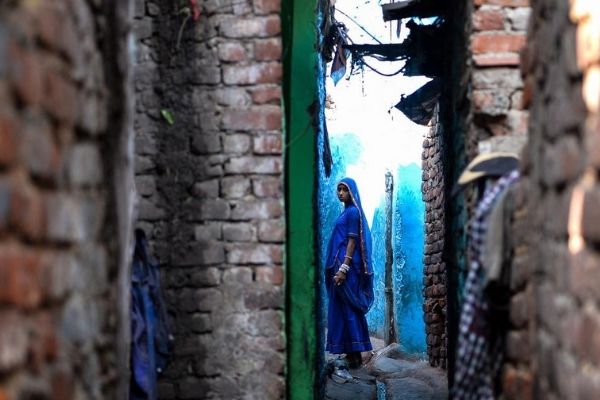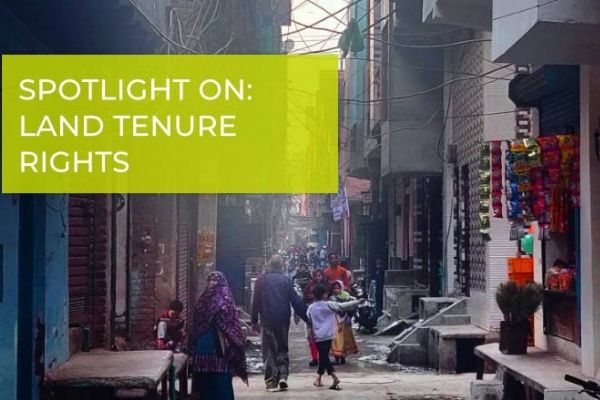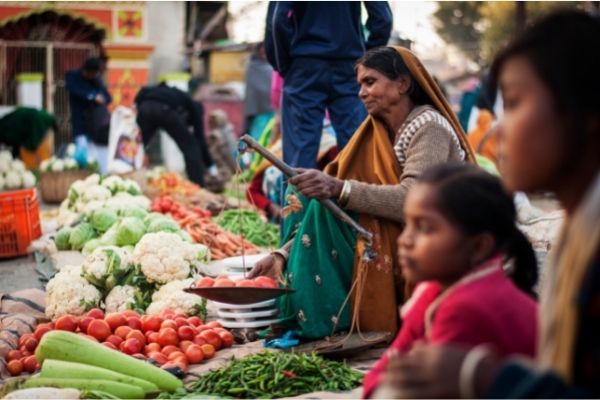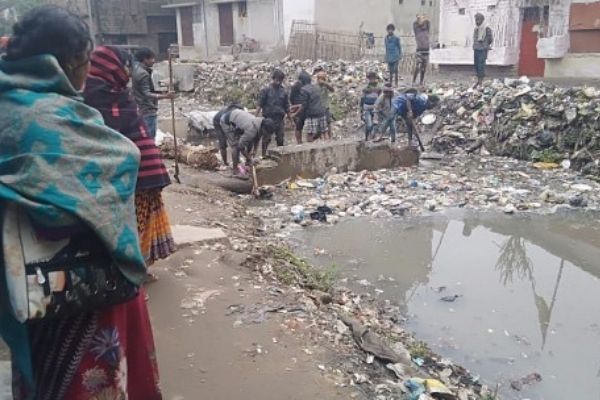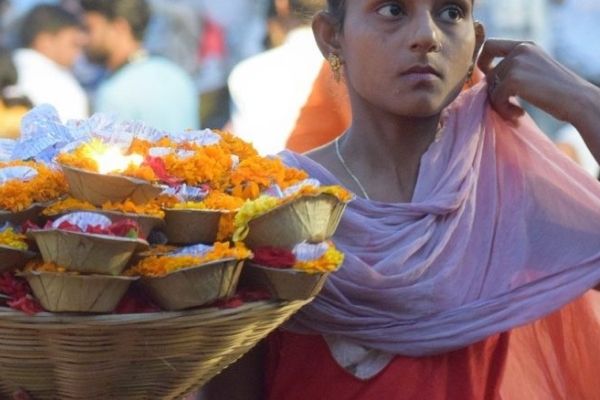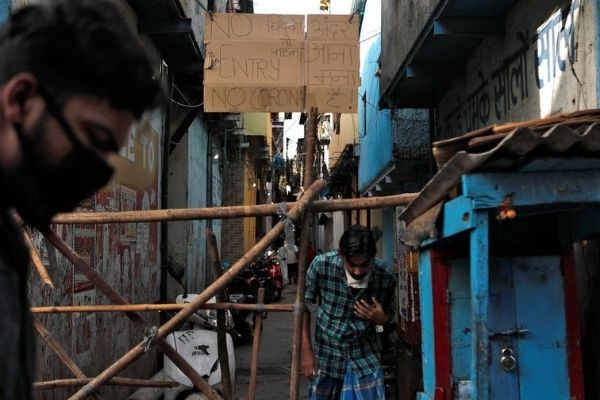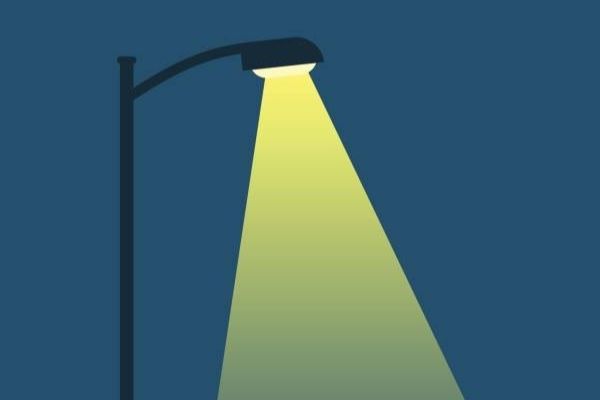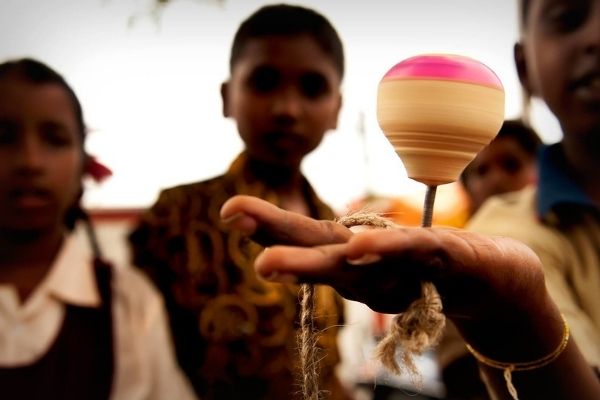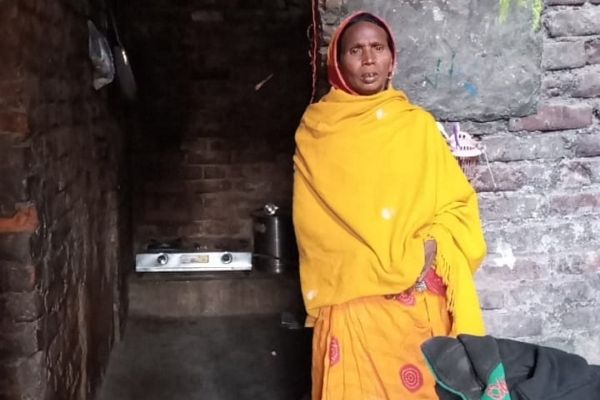Need for Women’s Access to Land Title and Ownership
SEWA’s decades-long involvement in empowering informal women workers revealed a strong connection between their living and economic conditions. Those working informally usually occupy spaces in informal settlements – in slums, resettlement colonies and unauthorised colonies typically suffering from lack of basic infrastructure services and insecure land tenure. Insufficient infrastructure services lead not just to ill-health, but also take away time from economic activities and opportunities, as critical time is spent in coping up with inadequacies.
Insecure tenure and limited ownership rights prevent women from investing in their homes, amplify the likelihood of domestic violence, and create a perennial risk of displacement and eviction. Further, mainstream financial services are typically inaccessible in informal settlements due to the status of land tenure and property documentation, and/or lack of third-party documentation of earnings.
A key concern is the lack of awareness amongst women informal workers about their current housing and land tenure status, their rights to infrastructure and services from the government and possibility of accessing formal finance. The SEWA Bharat team, therefore, aims to economically and socially empower women by creating awareness around the above, help improve their access to infrastructure facilities and strengthen their land tenure.
Our Approach
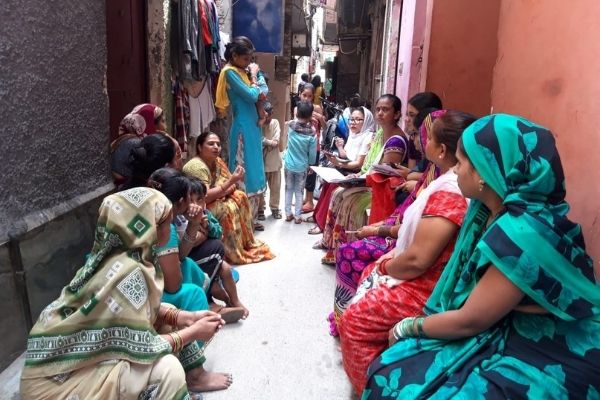
The SEWA Bharat team identifies infrastructure and tenure challenges as a chain of activities that are interlinked and impact each other. These issues are addressed through
- Awareness generation on basic infrastructure services and governance mechanisms, strengthening tenure security and ownership, and seeking formal finance.
- Mobilising community women and liaising with governments and service providing agencies to bargain for improved infrastructural services and tenure;
- Strengthening land tenure security through dejure (via policy, and legal routes) and de facto methods (indirectly via social security documentation and formalised infrastructure services);
- Creating access to innovative formal credit services for housing and livelihood regeneration loans in the informal economy.
- In parallel, SEWA also works at the advocacy level to shape public policies based on the prevalent ground realities of the urban poor.
Ongoing Projects
Zamini Adhikar Abhiyan
ZAA is a pilot project generating evidence about the methods that can be employed to improve awareness and access to infrastructure services, land tenure, and housing finance. The project works closely with informal economy women workers (such as home-based workers, street vendors, domestic workers, construction workers and agricultural workers) in six informal settlements of Delhi and Patna, with a wide spectrum of informal land tenure statuses. The pilot nature of the project lends to the creation of knowledge and methodologies that can be cross-applied to different landscapes encompassing varied forms of tenure security, settlement typologies, forms of trade, as well as infrastructure and tenure requirements.
ZAA aims to 1) increase economic opportunities for women leading to sustainable livelihoods, 2) increase the individual and collective agency of women through increased knowledge and capacity of skills relating to tenure, infrastructure services and housing finance and 3) increase women’s control over land and financial assets in households and communities. Ultimately, ZAA aspires to economically empower women and contribute to the family’s overall well-being
Roadmap to Tenure Security
The roadmap is an ongoing effort to collate, document, and visually depict the strategies that aid in strengthening tenure security for informal settlements in Delhi. It is based on SEWA’s experience of continuous engagement with Delhi’s informal settlements. By tenure security, SEWA refers to the owner’s right to use, sell, rent, and mortgage property without any legal constraints, or risks associated with displacement and eviction. SEWA has found that insecure tenure also limits access to basic infrastructure services such as water, roads, electricity, drainage, etc, and access to formal housing finance. Put together, insecure tenure affects quality of life and discourages residents from improving and investing in their living conditions.
The roadmap is an effort to collate information on the avenues to improve tenure security for each settlement typology via varying strategies. It documents opportunities, barriers, and learnings achieved through SEWA’s work in strengthening tenure security for informal settlements in Delhi.
As of now, the roadmap elaborates on 3 types of informal settlements – slums, unauthorised colonies, and resettlement colonies. The roadmap will be expanded on as the organisation continues its work in other types of informal settlements.
Community women share their experiences
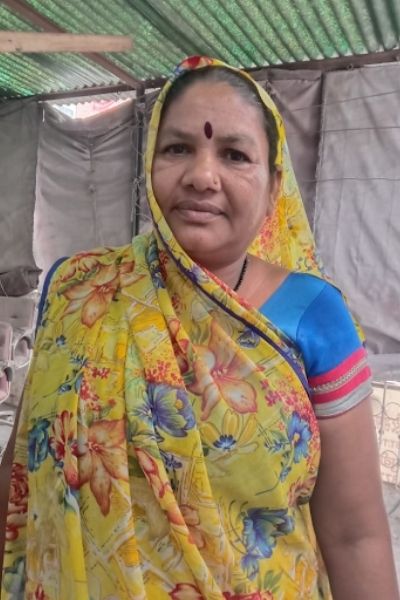
Laxmiben, Street Vendor
Raghubir Nagar, Delhi
Earlier, the street used to be very dark at night. But now, with functional streetlights, the streets are well lit and it feels very safe. My goods do not get stolen anymore, there are more customers and I’m able to sell for longer hours and earn more. Pieces that I used to sell at Rs 5/- per piece, are now sold at Rs 10/- and sometimes even at Rs 20/-
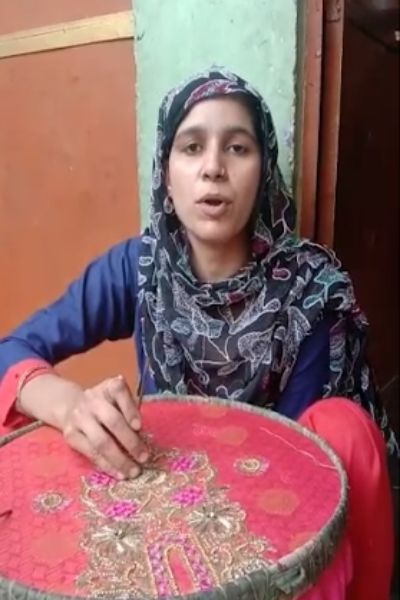
Gulista, Home-based Worker
Rajeev Nagar, Delhi
Waste-collecting vehicles would rarely visit our settlement and we used to face many difficulties. We used to walk a distance of 15 minutes to dump the waste. Everyday I had to compromise on my work hours and I’d lose Rs 15/- to Rs 20/-. Now that the waste collection is done regularly, I have benefitted immensely. Neither do I have to leave my work nor do I get tired now carrying garbage.

